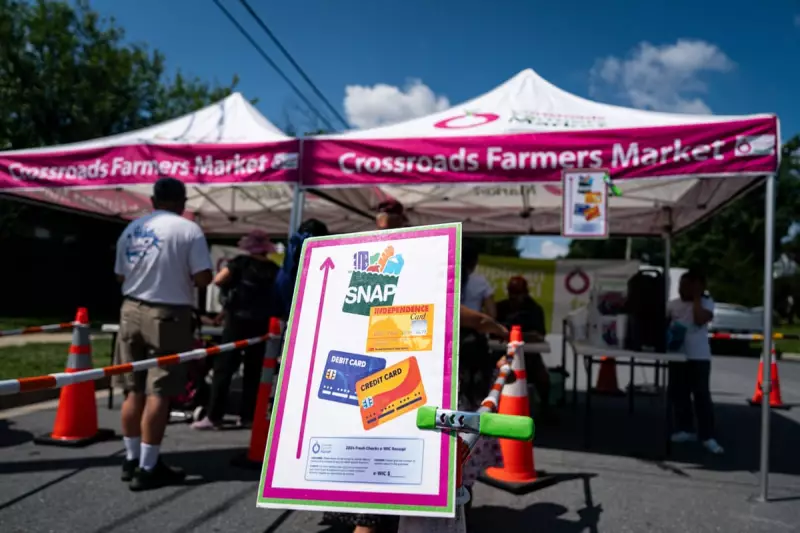
Millions of Americans relying on food stamps face an unprecedented crisis as critical funding for the nation's primary nutrition assistance programme is poised to expire next month, plunging vulnerable families into uncertainty.
Funding Cliff Approaches
The Supplemental Nutrition Assistance Programme (SNAP), which provides essential food support to low-income households across the United States, will see its authorisation lapse in November unless Congress can break the political impasse that has brought Washington to a standstill.
With partisan divisions deepening and no budget agreement in sight, administration officials are preparing for the worst-case scenario that could see benefits suspended for millions of families already struggling with rising living costs.
Vulnerable Populations at Risk
"We're staring down a humanitarian crisis," warned one senior official familiar with contingency planning. "Children, elderly citizens, and disabled Americans who depend on these benefits simply won't have access to adequate nutrition if this shutdown persists."
The potential suspension of SNAP payments comes at a particularly difficult time, with food inflation remaining stubbornly high and many households still recovering from pandemic-era economic shocks.
Administration Scrambles for Solutions
Behind the scenes, White House aides are exploring every possible avenue to mitigate the damage, including examining what emergency powers the administration might wield to provide stopgap support. However, legal experts caution that options are severely limited without congressional approval.
State governments are also preparing for the fallout, with many warning that their own social safety nets lack the capacity to absorb the shock of federal benefit suspensions.
Political Standoff Deepens
The funding crisis stems from a fundamental disagreement between Democratic and Republican lawmakers over government spending priorities, with both sides digging in their heels as the deadline approaches.
House Speaker Mike Johnson has faced criticism from within his own party for his handling of negotiations, while Senate Majority Leader Chuck Schumer has accused Republicans of "playing political games with people's lives."
With trust between the parties at rock bottom and election-year politics complicating every discussion, prospects for a last-minute breakthrough appear increasingly remote.
Economic Consequences Loom
Beyond the immediate human impact, economists warn that suspending SNAP benefits could have ripple effects throughout the economy. Grocery retailers, particularly in low-income areas, could see significant revenue declines, while local food banks report being already stretched to capacity.
"The timing couldn't be worse," noted economic analyst Dr Sarah Chen. "We're heading into the holiday season, when food insecurity typically increases, and now we're potentially removing the primary support system for millions of Americans."
As the clock ticks down to the November deadline, advocacy groups are mobilising to pressure lawmakers back to the negotiating table, while families who rely on SNAP benefits wait anxiously for news that could determine whether they can put food on the table next month.





